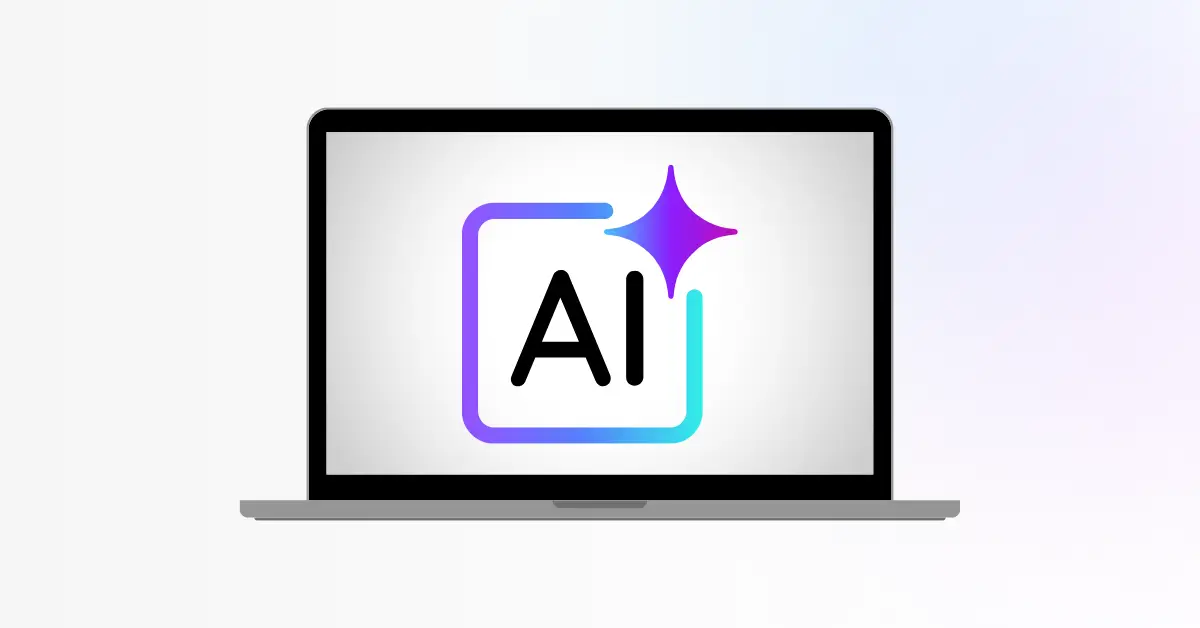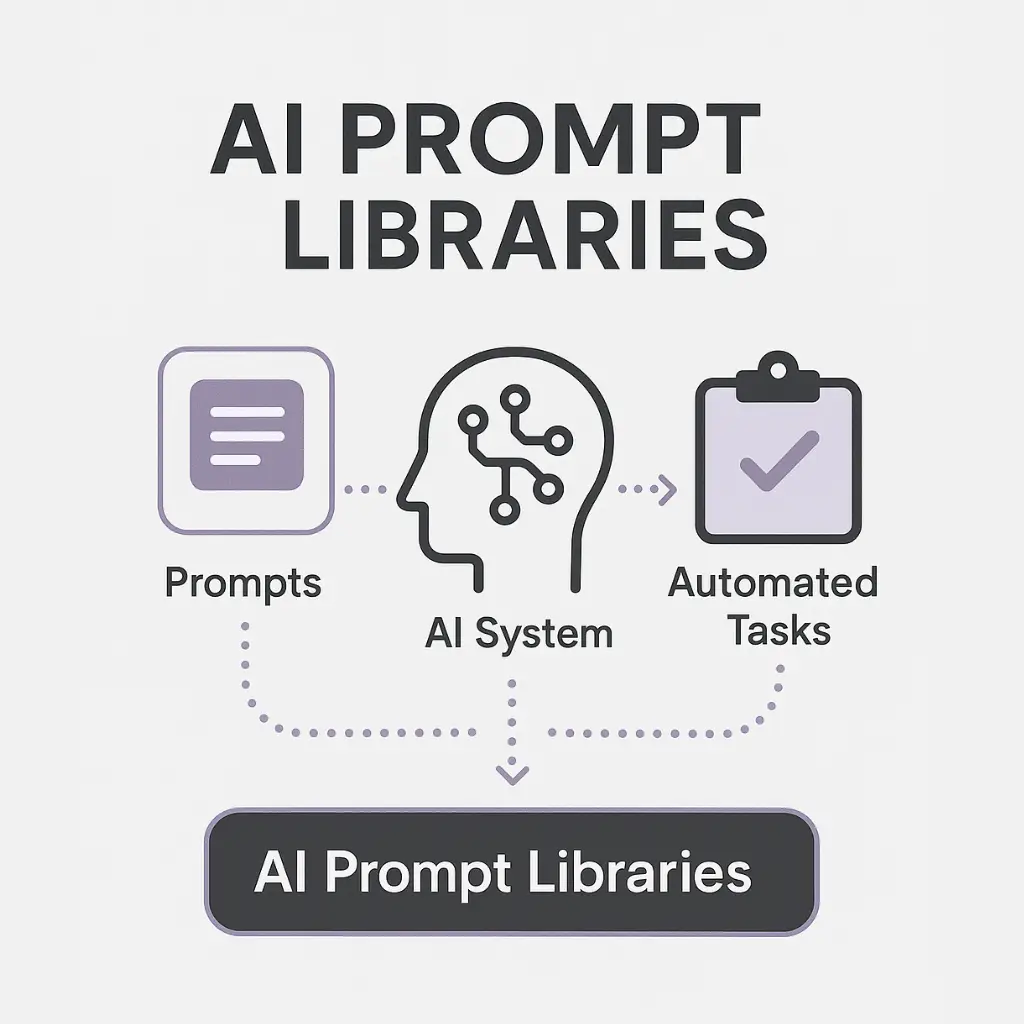An AI Prompt Library for Business and Process Management is quickly becoming a must-have for companies aiming to streamline operations in 2025.
In today’s fast-paced business environment, companies are under constant pressure to streamline workflows, improve decision-making, and eliminate inefficiencies. Directors and managers at mid-size businesses often face unique challenges, such as scaling operations while maintaining agility. One transformative solution is the AI Prompt Library—a tool that automates repetitive tasks, enhances productivity, and adapts dynamically to changing needs.
This article explores how AI Prompt Libraries are reshaping business and sales management workflows in 2025, showcasing real-world applications and actionable insights that demonstrate their transformative potential.
What Are AI Prompt Libraries?
When built with business strategy in mind, an AI Prompt Library for Business and Process Management helps teams automate day-to-day operations while keeping context and relevance intact. They enable businesses to automate routine tasks and enhance workflows with minimal human intervention. Unlike traditional automation tools, which rely on static, rule-based processes, AI Prompt Libraries are dynamic and context-aware, empowering businesses with personalized, efficient solutions.
For mid-size businesses, this means less time spent on manual processes—like drafting emails or analyzing sales pipelines—and more time focused on strategic priorities.
Key Benefits of Using an AI Prompt Library for Business and Process Management
1. Automating Repetitive Tasks
Routine, low-value tasks such as data entry, report generation, or email drafting consume valuable time that could be better spent on strategic initiatives. AI Prompt Libraries eliminate these inefficiencies by automating these processes, freeing employees to focus on high-impact work.
For instance, a sales manager can use AI to generate personalized email templates tailored to a lead’s preferences or automate meeting summaries and action items to keep teams aligned without wasting hours on administrative work.
Why It Matters: The average knowledge worker spends up to 30% of their workweek performing repetitive tasks or searching for information. By automating these processes, AI Prompt Libraries enable faster execution, higher productivity, and improved employee satisfaction (Grapevine, 2024). This trend has only accelerated into 2025, as organizations seek every efficiency gain possible.
2. Enhanced Decision-Making with Real-Time Insights
AI Prompt Libraries empower businesses with real-time insights by analyzing historical data, customer behavior, and market trends. This enables leaders to make informed decisions faster and with more confidence.
For example, a sales manager can leverage AI to forecast trends, identify bottlenecks in the sales pipeline, and recommend strategies to improve conversion rates. Proactive decision-making like this is nearly impossible with traditional workflows that rely on static reports and periodic data reviews.
Impact: Data-driven decisions tend to be more accurate as they rely on quantitative evidence, minimizing the risk of errors associated with subjective judgment or biases. (Technology Advice, 2025)
In 2025, the ability to access and act on real-time insights is a core differentiator for growing companies.
3. Streamlining Sales Pipelines
By integrating an AI Prompt Library for Business and Process Management, sales teams can automate lead qualification, track personalized follow-ups, and maintain a clean pipeline with minimal effort.
The sales process—from lead generation to deal closure—is one of the most time-intensive aspects of business management. AI Prompt Libraries revolutionize this workflow by automating key stages, such as lead qualification, personalized messaging, and follow-up scheduling.
Example Workflow:
• AI analyzes lead data to qualify high-priority opportunities based on engagement levels or deal size.
• It drafts personalized outreach messages tailored to each lead’s preferences.
• Follow-ups are scheduled and tracked automatically, ensuring no lead falls through the cracks.
Result: Businesses that adopt AI workflows for sales see faster lead conversion, better personalization, and more efficient pipeline management. Incorporating data-driven decision-making into these processes enhances accuracy by relying on quantitative evidence, thereby reducing errors associated with subjective judgments or biases. The adoption of prompt libraries in 2025 is a major driver of sales team performance. (Technology Advice, 2025)
Why AI Workflows Are Essential for 2025
With increasing competition and rapidly shifting market demands, businesses can no longer afford inefficiencies. AI Prompt Libraries provide the scalability and agility needed to remain competitive in 2025 and beyond.
Key Benefits for Sales and Operations Teams:
- Faster Lead Qualification: AI automatically identifies and prioritizes high-value leads, reducing the manual workload on sales teams.
- Scalable Personalization: AI enables tailored communication at scale, improving customer engagement and satisfaction.
- Workflow Automation: Repetitive tasks like follow-ups and data entry are seamlessly automated, ensuring consistency and saving time.
Case Studies
500 Designs, a leading design agency trusted by global brands like TikTok, HubSpot, and FedEx, achieved 40% revenue growth by harnessing AI to streamline workflows, automate repetitive tasks, and enhance team collaboration. This showcases how AI can deliver measurable improvements in both efficiency and output.
Another mid-size company implementing AI workflows reported a 13.8% boost in productivity and a 25% reduction in repetitive administrative tasks, demonstrating how AI can drive measurable improvements in efficiency and output (Accenture, 2024). These gains have become even more pronounced in 2025, as the adoption of AI prompt libraries accelerates across business sectors.
Adopting an AI Prompt Library for Business and Process Management isn’t just about automation—it’s about building a system that scales with your team, adapts to your goals, and boosts results.
How Aurora Enhances AI Prompt Libraries
Aurora takes AI Prompt Libraries to the next level by integrating them with advanced features like Knowledge Docs and SmartFlows:
- Centralized Knowledge Management: Aurora’s Knowledge Docs serve as a dynamic repository where business-critical information is stored and referenced in real-time, powering every AI interaction with context-rich insights.
- Intelligent Workflow Automation: SmartFlows guide teams step-by-step through complex processes, ensuring consistency and reducing errors. Detailed prompts are built on the backend, then those templates can be deployed across teams and organizations.
- Seamless Collaboration: Aurora’s Workspaces enable teams to store files, manage tasks, and collaborate effortlessly, keeping everyone aligned and productive.
Impact: By integrating AI with centralized data and workflow automation, Aurora improves productivity, collaboration, and decision-making across teams.
Conclusion
AI Prompt Libraries are not just a trend—they’re a transformative tool for modern business management in 2025. By automating repetitive tasks, enhancing decision-making, and optimizing workflows, they empower businesses to achieve more with less effort.
With tools like Aurora, implementing an AI Prompt Library for Business and Process Management is easier than ever—and it’s a smart investment for long-term efficiency and growth.
Ready to transform your workflows? Experience the power of Aurora today.

